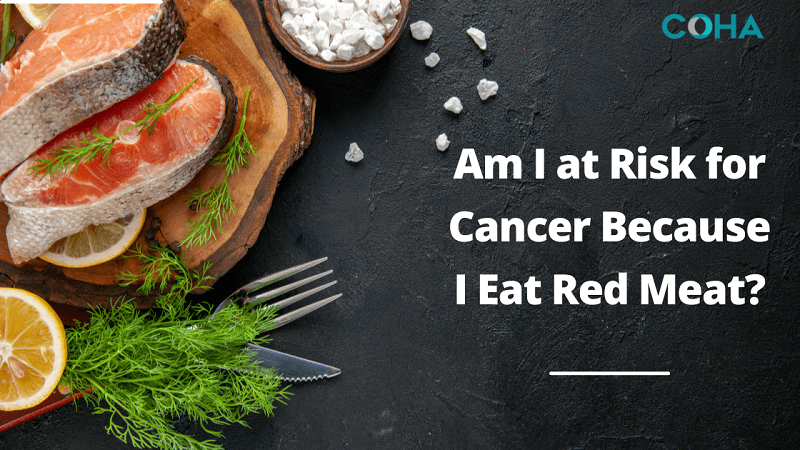


Do you know that excessive consumption of red meat can increase your chances of getting cancer? Red meat includes meats from beef, pork, venison, and lamb. According to the United States Department of Agriculture (USDA), out of the 144 pounds of meat consumed by an average American in 2017, red meat accounted for over 50% of it.
Both processed and unprocessed meats can potentially cause cancer. Process meats have been modified by curing, salting, or smoking to enhance the taste, shelf life, or texture. Unprocessed red meats include items like steak, lamb shanks, and pork chops.
The International Agency for Research on Cancer (IARC), a part of the World Health Organization, has reviewed over 800 studies for the last 20 years to assess the link between red meat and cancer.
According to the IARC, 50g of processed red meat consumed daily can increase the risk of colorectal cancer by 18%.
Here are the possible reasons how unprocessed and processed red meat can cause cancer:
Eating more than 700g raw or 455g cooked red meat is not recommended. A serving of red meat is equivalent to 65g cooked or 90-100g raw meat. Therefore you can have one serving every day or two servings across 3-4 meals a week.
Compared to unprocessed meats, processed meats are high in salt and fat and low in nutrients. Though red meat is packed with vitamins (B6 and B12), minerals (iron, selenium, and zinc), and protein, regular consumption can possibly lead to cancer. Also, IARC has defined processed meat as a carcinogen (capable of causing cancer). Therefore, try avoiding processed meat as much as you can to reduce your cancer risk.
Instead of processed and red meat, you can add these items to your diet to get the nutrients you need:
You can also take the following steps:
Researchers have been analyzing red meat for quite some time for its potential connection to several health conditions, including cancer. Experts now believe that there’s substantial evidence proving that consuming high amounts of red and processed meat can significantly increase your cancer risk.
Contact the doctors at Chesapeake Oncology Hematology Associates today for cancer diagnosis and treatment or if you have any questions concerning cancer.
Also Read : How Can Genetic Testing Increase the Effectiveness of Your Cancer Treatment?